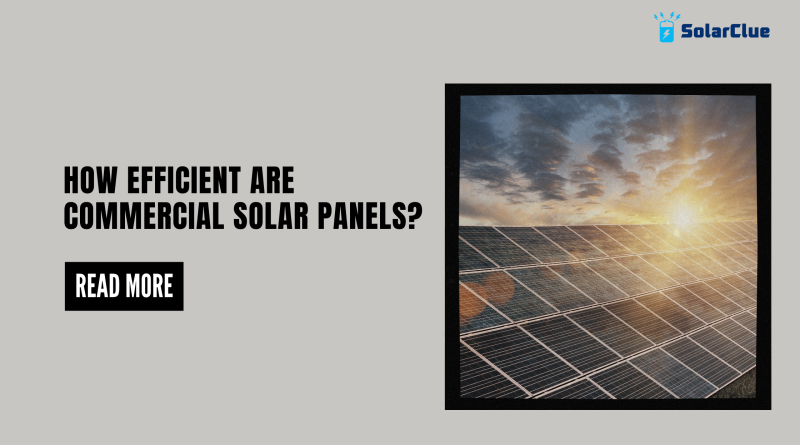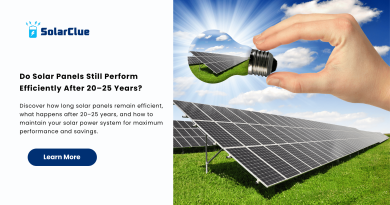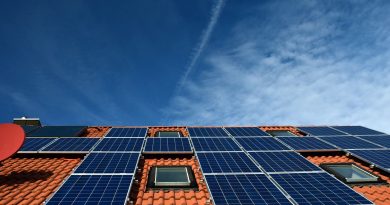How Efficient Are Commercial Solar Panels?
Solar panel efficiency is a critical factor in determining the overall performance and cost-effectiveness of a solar energy system. This guide explores the concept of solar panel efficiency, factors affecting it, and advancements in technology that are enhancing efficiency.
Table of Contents
- 1 The Concept of Solar Panel Efficiency and Its Impact on Energy Output
- 2 Factors Affecting Solar Panel Efficiency and How to Optimize Them
- 3 Comparing Efficiency of Different Solar Panel Types and Their Applications
- 4 The Future of Solar Panel Efficiency and Emerging Technologies
- 5 Solar Panel Types
- 6 FAQs
The Concept of Solar Panel Efficiency and Its Impact on Energy Output
Definition
Solar panel efficiency refers to the percentage of sunlight that is converted into usable electricity by the solar cells. Higher efficiency panels generate more electricity from the same amount of sunlight compared to lower efficiency panels.
Importance
- Energy Output: Directly influences the amount of electricity generated.
- System Size: Higher efficiency panels require less space to produce the same amount of power.
- Cost-Effectiveness: Impacts the overall return on investment and payback period.
Factors Affecting Solar Panel Efficiency and How to Optimize Them
Cell Technology
- Monocrystalline: High efficiency due to single crystal structure.
- Polycrystalline: Moderate efficiency with multiple crystal structures.
- Thin-Film: Lower efficiency but flexible and lightweight.
Temperature
- Temperature Coefficient: Efficiency decreases as temperature increases.
- Optimization: Install panels with proper ventilation to reduce heat build-up.
Shading
- Impact: Even partial shading can significantly reduce efficiency.
- Optimization: Install panels in unshaded locations and use microinverters or power optimizers.
Dirt and Debris
- Impact: Accumulation of dirt can block sunlight.
- Optimization: Regular cleaning and maintenance.
Angle and Orientation
- Impact: Improper angles reduce sunlight absorption.
- Optimization: Install panels at optimal tilt and orientation based on geographic location.
Comparing Efficiency of Different Solar Panel Types and Their Applications
Monocrystalline Solar Panels
- Efficiency: 15-22%
- Applications: Suitable for residential and commercial installations with limited space.
- Advantages: High efficiency, long lifespan, and aesthetic appeal.
- Disadvantages: Higher cost.
Polycrystalline Solar Panels
- Efficiency: 13-18%
- Applications: Suitable for larger installations where space is not a constraint.
- Advantages: Lower cost.
- Disadvantages: Lower efficiency and less aesthetically pleasing.
Thin-Film Solar Panels
- Efficiency: 10-12%
- Applications: Suitable for large-scale installations, flexible applications, and areas with low light conditions.
- Advantages: Lightweight, flexible, and lower cost.
- Disadvantages: Lower efficiency and shorter lifespan.
The Role of Efficiency in Determining System Size and Payback Period
- System Size: Higher efficiency panels require fewer panels for the same power output, reducing the overall system size.
- Payback Period: More efficient panels generate more electricity, reducing energy costs and shortening the payback period.
The Future of Solar Panel Efficiency and Emerging Technologies
Advanced Cell Technologies
- PERC (Passivated Emitter and Rear Cell): Increases efficiency by reducing electron recombination.
- Bifacial Panels: Capture sunlight from both sides, increasing energy output.
- Heterojunction Cells: Combine different materials to improve efficiency.
Nanotechnology and Quantum Dots
- Impact: Potential to significantly increase efficiency by capturing a broader spectrum of light.
Perovskite Solar Cells
- Impact: Promising technology with high efficiency potential and low manufacturing costs.
The Impact of Efficiency on the Overall Cost of Solar Energy
- Initial Investment: Higher efficiency panels have a higher upfront cost but can reduce the overall system cost due to fewer panels and less installation material.
- Long-Term Savings: More efficient panels generate more electricity, leading to higher savings on energy bills.
How to Evaluate Solar Panel Efficiency Claims and Certifications
- Efficiency Ratings: Check the panel’s efficiency rating provided by the manufacturer.
- Certifications: Look for certifications from recognized bodies such as IEC (International Electrotechnical Commission) and UL (Underwriters Laboratories).
- Performance Guarantees: Consider panels with performance guarantees and warranties.
Solar Panel Types
| Solar Panel Type | Efficiency Range | Typical Applications | Advantages | Disadvantages |
|---|---|---|---|---|
| Monocrystalline | 15-22% | Residential, Commercial | High efficiency, long lifespan, aesthetic | Higher cost |
| Polycrystalline | 13-18% | Large-scale installations | Lower cost | Lower efficiency, less aesthetic |
| Thin-Film | 10-12% | Large-scale, flexible applications | Lightweight, flexible, lower cost | Lower efficiency, shorter lifespan |
| PERC | 18-23% | Residential, Commercial | High efficiency, improved performance | Higher cost, newer technology |
| Bifacial | 15-25% | Commercial, Industrial | High efficiency, increased energy output | Higher cost, requires specific installation |
| Heterojunction | 20-25% | Residential, Commercial | High efficiency, good temperature performance | Expensive, complex manufacturing |
Conclusion
Understanding the efficiency of solar panels is crucial for selecting the right panels for your needs. By considering factors such as cell technology, temperature, shading, and advancements in technology, you can make informed decisions that optimize energy output and cost-effectiveness.
Here at SolarClue®, we offer a smart, practical, and “beautiful” solution. You will be answered for all the questions related to Solar.
We provide all kinds of brands that are the Best Solar panels in India.
If you are the one who is planning for the solar power system. Don’t hesitate to contact our team!
Looking forward to empowering you with solar energy, just like hundreds of our other clients!
FAQs
1. What is the most efficient type of solar panel?
Currently, monocrystalline and heterojunction panels offer the highest efficiency.
2. How does temperature affect solar panel efficiency?
Higher temperatures reduce efficiency due to increased resistance in the solar cells.
3. Are more efficient solar panels always better?
Not necessarily; the best choice depends on your specific needs, budget, and installation conditions.
4. Can shading affect the efficiency of my solar panels?
Yes, even partial shading can significantly reduce the efficiency of solar panels.
5. What are some emerging technologies in solar panel efficiency?
Advanced cell technologies like PERC, bifacial panels, and perovskite solar cells are promising advancements.




